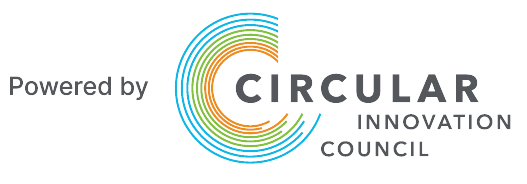Food & Catering
Food & Catering + Circular Economy
Circular Supplies
Supply fully renewable, recyclable, or biodegradable resources
Resource Recovery
Eliminate material leakage and maximize economic value of product return flows
In Canada, food and catering represent approximately one percent of municipal public procurement spend and 58 percent of all food produced annually, which is equivalent to 35.5 million tonnes lost or wasted. That is enough to feed every Canadian for five months. When food is wasted and lost to disposal it creates methane, which is 25 times more damaging to the environment than CO2. Globally, an estimated one-third of all food produced ends up rotting in bins or spoiling, and the agricultural sector is responsible for 22 percent of total greenhouse gas emissions, and 69 percent of annual water withdrawals. More importantly, food waste is a resource that can be used in production processes.
It is imperative that we adopt and apply circular principles to food and catering to reduce waste and curb environmental degradation. Circular economy business models, like resource recovery and circular supplies, can reshape food production, consumption, and secondary waste generation like food packaging. The resource recovery model, through composting, for example, allows food waste to be recovered at the end-of-life and used as raw material inputs in the production of compost or bio-fuel.
EXAMPLE
How Food & Catering industries Can Advance The Circular Economy
Food and catering service providers can demonstrate circular supplies business models in their operations by providing customers with reusable containers. A deposit is included in the purchase and refunded when the container is returned. The containers are then washed and sterilized for reuse, which reduces waste and creates a closed-loop system.
Circular Supplies
Resource Recovery
JOIN US

Awareness of the negative effects of unsustainable consumption and production, and the link to the current linear economy of take-make-waste, is an important priority in today’s society. Governments, businesses, and communities worldwide realize the need to fundamentally and systematically shift patterns of production and consumption. The circular economy offers an alternative and reinvented economic model that is holistic in nature and drives economic prosperity while protecting the environment to benefit society.
We are on the cusp of the circular economy in Canada and collaboration is crucial to advance it.
For information on how to further align efforts to support greater circularity, a customized partnership proposal is available on request. Contact for more information.
